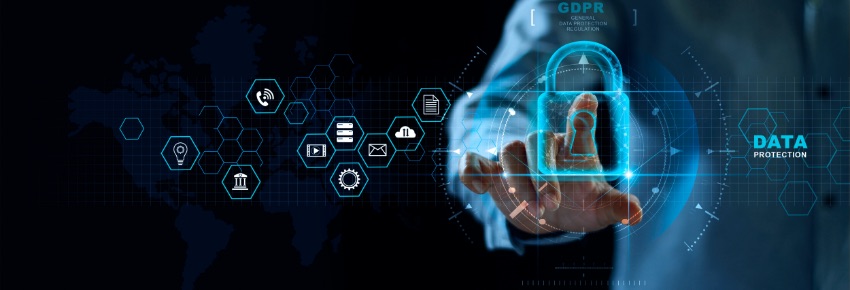Hackers are on the rise, but they don’t have to be.
Juil 23, 2020 | 42Gears Team
You might have seen news about hacker assaults on companies like Microsoft, Zoom, and Twitter. You might have wondered, are hacker threats more intense now than in the past? Or is it just my imagination?
The source of this attack on accountability? The sudden rush of people taking on jobs from home, for three reasons. Let’s look at them below.
1. Office workers are not trained to do their jobs from home
Hundreds of millions worldwide have recently worked jobs from home when they would have otherwise gone into an office.
In most cases, this was a sudden change. Office workers didn’t have time to learn the ins and outs of data safety in a work-from-home context.
In an office, you learn some accountability measures on the first day of work. Lock the door if you’re the last one out. Only connect to the office Wi-Fi server. Set a strong password you don’t use anywhere else.
There’s no training like that when employees do their jobs from home.
Many people now find themselves using personal devices to access work materials, without the knowledge of how to protect those devices. They might expose data to a hacker without even knowing it.
For many managers, the task of checking with every worker, every day for accountability as they do their jobs from home is huge. Many don’t even attempt it. But it only takes one irresponsible employee to create vulnerabilities.
2. The remote worker’s dilemma: Use risky devices, or don’t do work at all?
A big part of being an empathetic and upstanding citizen during the pandemic is understanding that things will take longer- whether that means grocery delivery, non-urgent medical care, or airport security clearance.
Unfortunately, device repairs also take longer during the pandemic. You might be able to repair work devices, but when many use their own, it’s more difficult. This means that workers might have broken or unreliable personal devices that they need to do their jobs from home.
This puts workers in a tricky situation that pits accountability against productivity.
Should I hold off on the work I need to do with a device that’s not working right, or do the work and risk a hacker accessing business data?
This isn’t a fair situation for workers, many of whom choose to keep working for fear of losing their jobs. When combined with a general lack of training for remote work, this creates some major vulnerabilities.
3. If a hacker needs money, data is more valuable than ever before
Businesses that are preparing to reopen need their plans to succeed- and to maintain a competitive edge, those plans may need to be kept secret.
As layoffs and furloughs have severely affected the global economy, some may turn to data theft as a way to generate income.
Business resurgence plans are extremely valuable to steal- either to hold hostage via ransomware, or to sell to an unscrupulous competitor.
Of course, hacking is always a concern, but now it’s driven by the need for money. This makes hacker incidents both more frequent and more costly for businesses each time it occurs.
… and one reason why this doesn’t have to scare you.
Mobile Threat Defense lets you secure business data on employee-owned devices
You can use mobile device management (MDM) software to safeguard against this increased range and frequency of threats, even as employees slowly learn how to do their jobs from home.
You might be worried that this would be intrusive on employee devices – but you can uphold both privacy and accountability with containerization. This means you create a virtual box on employee devices where all business data is stored. Any Mobile Threat Defense measures will only affect the virtual box- not any of the user’s personal data.
Where We Go From Here
Given the threat of a second spike in infection rates and associated quarantine, businesses need to secure the devices employees need to do jobs from home. When data theft becomes a major source of income, your data will come under siege- but you don’t need to be afraid.
With the right mobile device management solution- one with both Mobile Threat Defense and containerization – you can keep your data safe and uphold your commitment to accountability.
42Gears- Secure Employee-Owned Devices Now.
Subscribe for our free newsletter

